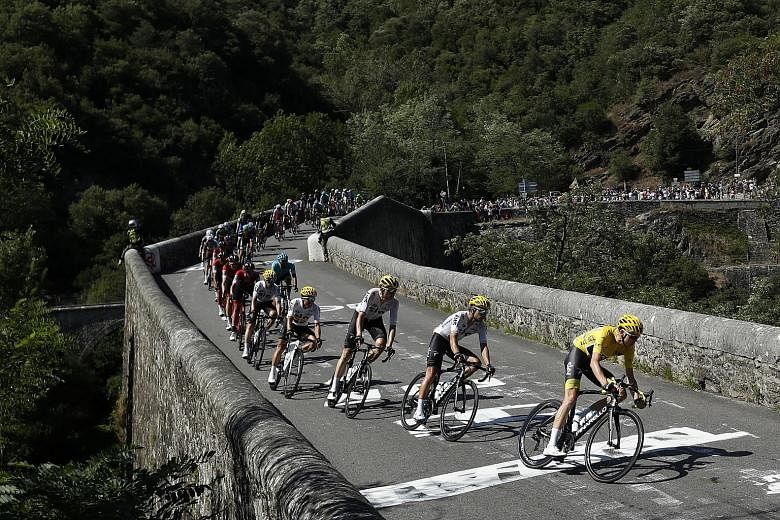LE PUY-EN-VELAY (France) • Chris Froome's bike is among the many to have been repeatedly tested for a hidden motor during this year's Tour de France, as the sport steps up its fight against technological fraud.
Immediately after Sunday's stage to Le Puy-en-Velay, in which he closed a 50-second gap to his rivals on the steep penultimate climb, the Briton's bike was scanned by testers from the UCI, the sport's governing body, who were waiting beyond the finish line.
The team running their iPads over bike frames has become a familiar sight on the Tour, both in start villages and beyond the finish lines of most stages.
The UCI was first alerted to the possibilities of motors in bikes in 2010 and has now increased the frequency and sophistication of testing and believes that its scanners are "100 per cent effective".
The threat of technological fraud became real early last year when the Belgian rider Femke van den Driessche, competing in the women's world cyclo-cross championships, was caught racing with a concealed motor in the frame of her bike. She was banned for six years until October 2021.
Since then the UCI has increased testing, scanning more than 18,500 bikes last year and an estimated 22,000 by the end of this year. Mark Barfield, the UCI's technical manager, said that his team had conducted 3,000 tests since the Tour left Dusseldorf on July 1.
He has even sent his detection staff into the peloton during this year's Tour on motorcycles, checking for motors as they sit alongside riders racing in breakaway groups.
"The basic principle is that we create a magnetic field," he said, "and anything that disturbs that fixed magnetic field shows up on the software that we have."
Froome has faced allegations of mechanical doping in the past, particularly in 2013 and 2015 when his violent accelerations in mountain stages became the subject of intense scrutiny.
Among others to have accusations levelled against them are Fabian Cancellara, a multiple Classics winner and Olympic time-trial champion, and Alberto Contador, a winner of two Tours. Both denied using motors.
Froome held on to his yellow jersey yesterday, maintaining an 18-second lead as Australian Michael Matthews took the 16th stage - his second stage win this year.
THE TIMES, LONDON

